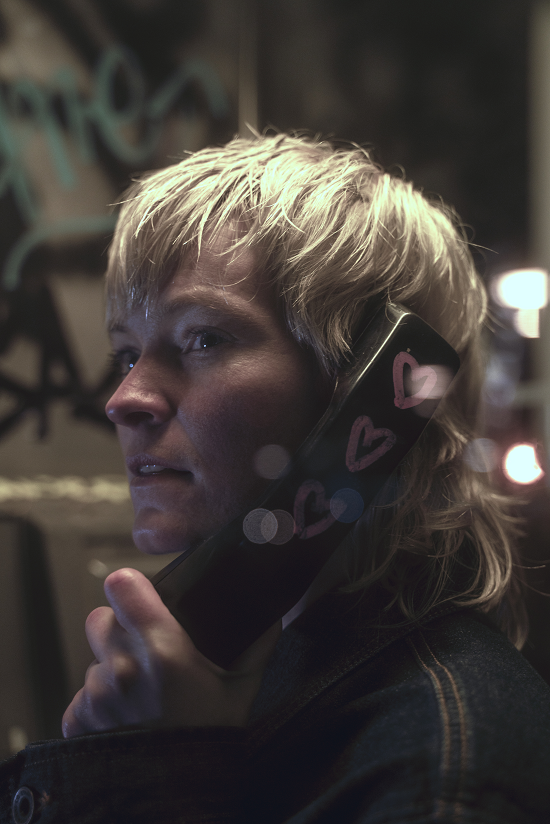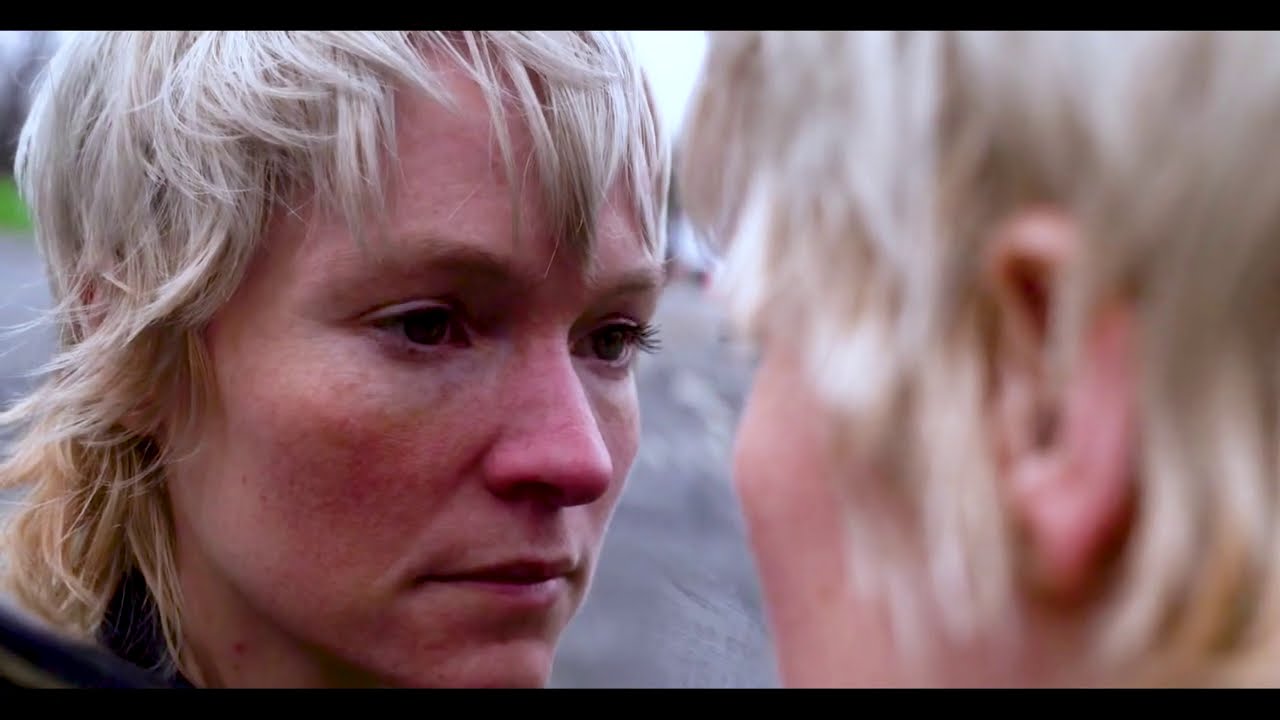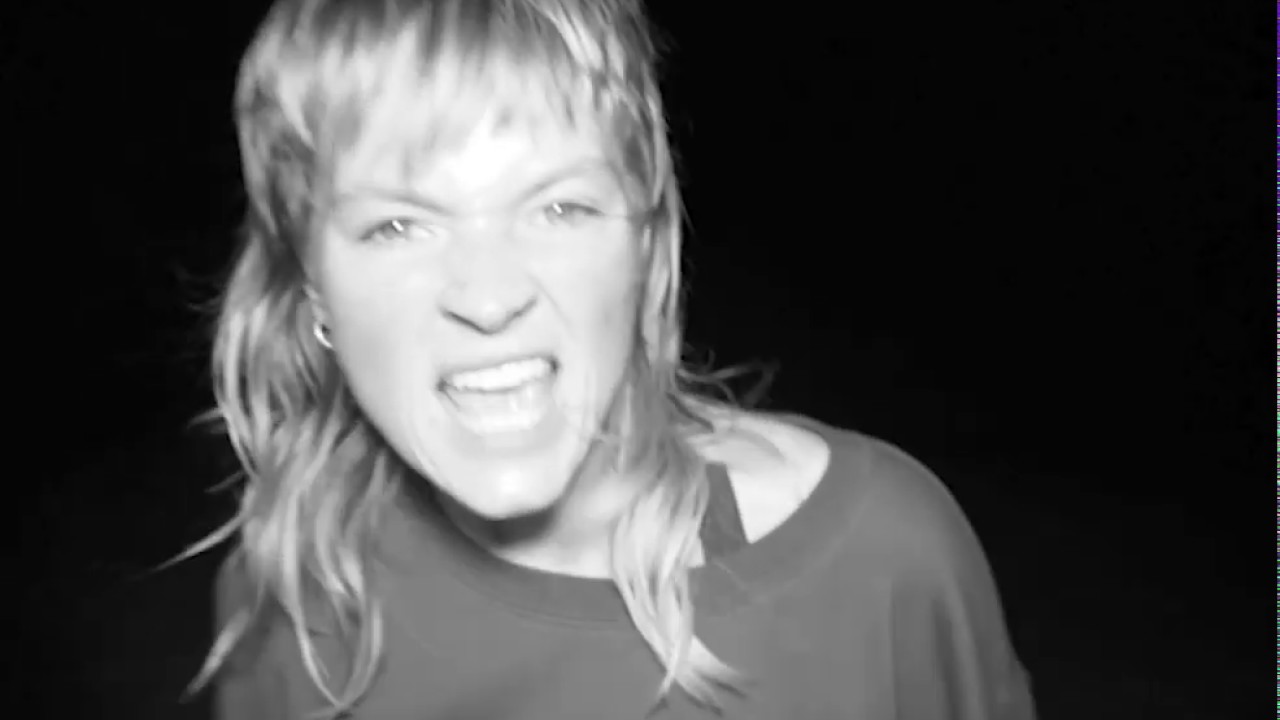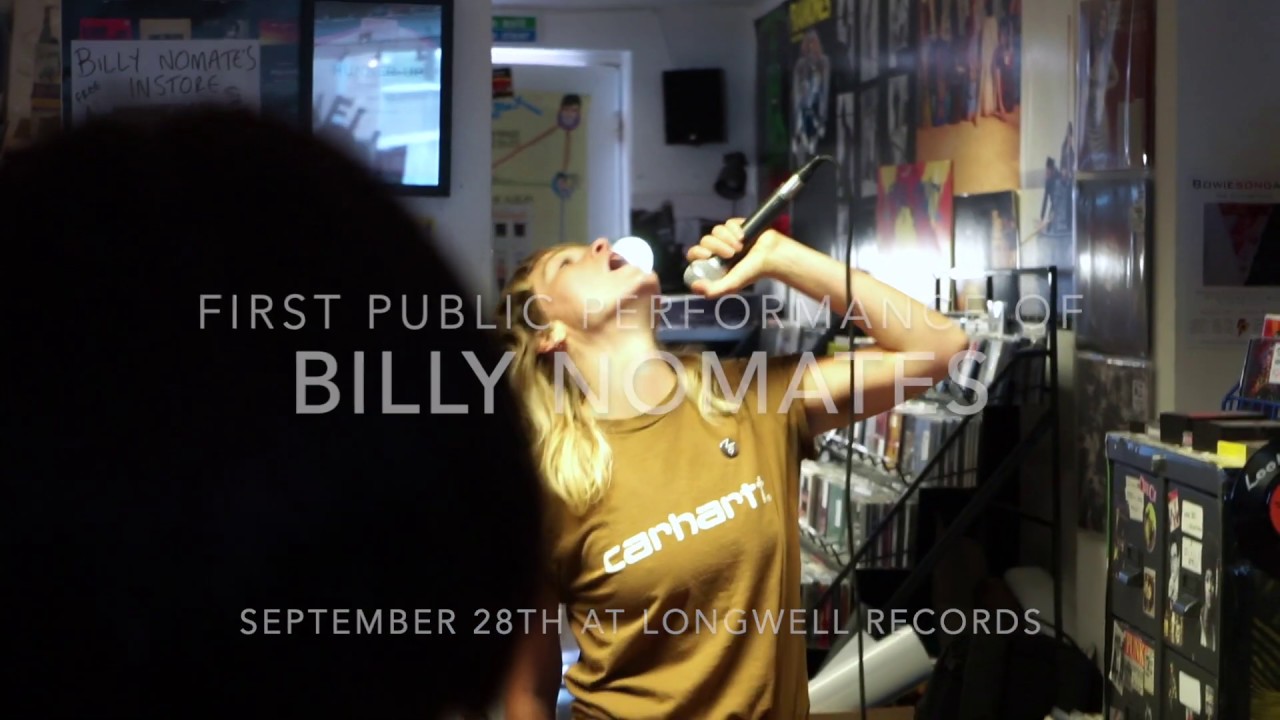The Quietus speaks to Tor Maries, who records as Billy Nomates, in the middle of lockdown three. She’s holed up at her dad’s house on the Isle Of Wight, where at time of speaking the transmission rate is the worst in the entire United Kingdom. “We’ve been told if we dial 999, no one’s gonna come,” she says with grim resignation. It’s been suggested by experts on the subject that our personal response to the pandemic closely resembles the psychological concept of the stages of grief, and as we speak via Zoom she’s wallowing in stage four, sadness. “This time around it’s just really sombre…”
After spending her 20s trying and failing to make it on a shoestring in a procession of Bristol bands, a subsequent period where she gave up on music entirely, and then another when she picked herself up from her lowest ebb to start Billy Nomates, by the start of 2020, she was finally starting to gain traction as an artist.
Her lithe and vivid demos, honest vignettes of the realities of life at its most banal, caught the ear of Sleaford Mods, and their manager Claire Herron Williamson passed the recordings on to Geoff Barrow’s Invada Records who offered her a deal. But just as things were looking up, the pandemic put paid to all that long-earned momentum, forcing Invada’s release of her debut album to be delayed, and scuppering any touring plans. In terms of grief it was a mixture of stages one and two, denial and anger. “I was furious at the world, furious at my timing, furious at the virus,” she says.
“I personally feel we’re looking at another year of no gigs, though I’d love to be wrong. I might be a few albums in before we get out. Then you start thinking ‘OK, I can keep writing,’ but if you’re being honest, what you want to do is go and experience, figure it all out a bit, take a bit of stock. We’ve all had to zoom out so far and think about where we are as a nation, as humans. That’s not a bad thing artistically, but sometimes you don’t wanna ask the big questions, you want to talk about some mad shit you did with a friend or something.”
Grievances must of course be put into perspective, but Maries’ woes are both real and reflective of an urgent wider issue in British independent music. “I personally think we’re all experiencing low level PTSD. An entire industry shut down overnight and no one got to say goodbye. It’s relative, but being raw and honest about it I feel a little bit traumatised!” The lack of touring has dealt a particularly devastating blow. “[Being a musician], coming out of the last year into this climate, it feels incredibly fragile, even for people a few albums in on big labels. We’re all fragile now.”
For an artist like Maries, however, the experience of being a musician has always been somewhat fragile. From a background she describes as “on the fringes of working class,” while trying to make it in her early 20s she had to work full time in the day in order to play shows by night, and found herself succeeding in neither. “It’s really difficult to be in a band and work. It’s hard,” she says. “You work all week, you are knackered, and you’re on bills with other bands that are clearly on a different planet and have all this money to play with. You feel defeated.
“I’ve got to the point where it sounds like I just hate anyone with money,” she continues. “But the truth is what pissed me off then and what pisses me off now is this class barrier for musicians. A lot of the London lot, they’ve come from really good music colleges, they’ve had leg up after leg up. It’s not a fair playing field and it never has been. You can pour your soul into stuff, but it actually just doesn’t matter.” Conversation turns to the UK government’s decision to decline the EU’s offer of visa-free work permits for musicians wishing to tour there, which will have calamitous effect on British musicians. “That’s just another example of it,” Maries says. “Kids with money, they ain’t worried about getting their visas.”
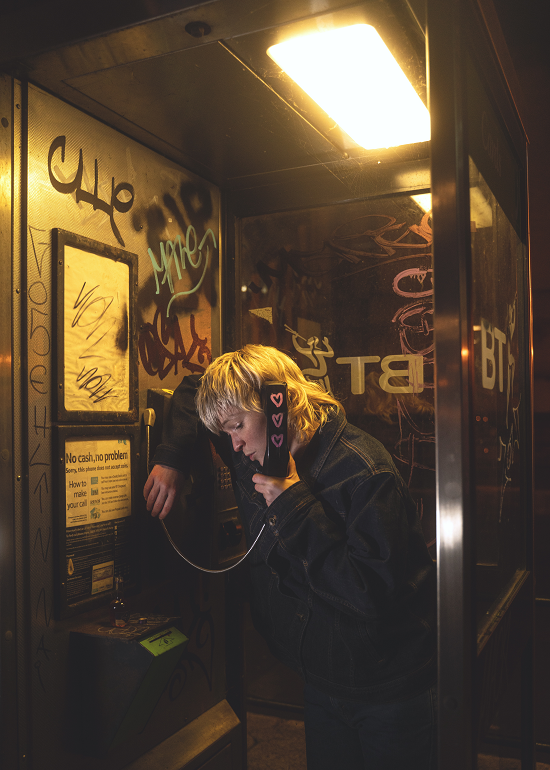
When she reached her mid-20s, Maries’ friends in the Bristol scene began to buckle under the pressure, packing in their fruitless attempts to make music work so they could get ‘proper’ jobs, move in with partners and start saving for a mortgage. “You think, ‘Fuck, I need some money at some point, because I don’t want my life to be totally shit.’”
Before long, she ended up packing music in too. “I think I loved it so much and wanted to make it work so much, that I just couldn’t bear to do it at an amateur level any more. I felt, ‘It’ll be this forever, minimum wage jobs forever, when will I have any success in either?’” She took a job in the marketing department at a university. “I got fed up, so I focussed on making a bit of money in a job I didn’t absolutely hate. I think that’s where a lot of artists go to.”
She turned her back on playing music to focus on a career in marketing, but within a couple of years life had taken a tumble. Maries was sleeping on her sister’s sofa in Bournemouth, had just gone through an extremely difficult breakup, and was suffering from intense depression. “I just felt like, ‘Oh. I’m dreadful. I’m absolutely dreadful! Not only am I shit at my job, a pain in the ass, and a burden, I’ve actually got nothing to give!’ Truly, what could I do?” The only solution she could find was to start writing songs again. “I thought, ‘What did you do that made you happy before? Well, you used to write songs before that all went to shit.” She sold her old guitar amp to buy a laptop, taught herself GarageBand, and wrote the unflinchingly honest vignettes that would eventually become her debut album Billy Nomates, recording them in her sister’s kitchen when everyone else was out. “Music was a reminder of where I felt good, where I could communicate who I was.”
One of the advantages of having your ego annihilated is that your motivations alter. “All of a sudden, this is the one that feels like it’s coming from a place of substance, a place of soul. You’re not doing it so you can play at a fancy place on a Friday night to look cool, you’re doing it because you have to. I realised that the only thing I truly want to do is to write songs.” It is probably no coincidence that this was the music that finally got her noticed. She direct messaged her music on a whim to Sleaford Mods – a fan of the duo, Maries takes her stage name from the insult thrown her way by a crowd member when she went alone to one of their gigs. They were impressed, and through a string of recommendations she found herself signed to Invada.
Iain Aitchison of Bristol’s Longwell Records also got wind of Maries’ project and invited her to play her first ever show in September 2019. You can see footage online, Maries performing with just a laptop and a mic to a handful of people stood inches away on the shop floor. That renewed passion for music she was feeling is there for all to see as she jerks and contorts in strange, convulsive movements, all the while singing with the swagger of a 1980s crooner. It’s as if she’s playing to a crowd one hundred times the size. “I mean I’d got on a train, I’d made the journey, so I’ll do what I’ve gotta do,” she says. “There’s got to be some energy there, otherwise why would you come and watch it?” Her movement was partly inspired by the contemporary dance students at the university she worked at; her job meant she could get cheap tickets to their performances. “I mean I’m not a dancer of any kind, but I got really into how movement can be effective. I think it’s quite interesting to watch somebody move in a non-delicate way. Especially as a female artist.”
From that first show there was a degree of separation between Tor Maries, who is attentive and reflective in conversation, and the confident, charismatic Billy Nomates. “If Billy Nomates gets slated for something that’s cool. If Tor Maries gets slated for something I’m heartbroken.” It’s a persona that carried over to her debut album which describes an all-too familiar world of dead-end jobs and gallows humour but injects it with character through the same slick charm that was on show at Longwell Records. It sounds rough around the edges by circumstance, given it was made in a kitchen, but Billy Nomates’ DIY aesthetics have become part of the design. “I don’t want to give you something polished, you can go to every other artist for that.” She’s keen to keep doing as much of production and engineering as she can, setting up a makeshift studio in her father’s shed.
The plan for 2020 was to keep evolving Billy Nomates on the road, particularly around the record’s release, but then the pandemic hit. After recovering from the whiplash of an abrupt, undesired screech to a halt, just as momentum was really beginning to pick up, Maries was forced yet again to make the best of what she had. With lockdown shrinking her world considerably she started getting obsessed with the old payphones dotted around the Isle of Wight like monuments to a bygone era, some of which are no longer connected.
One booth on the bay for emergency calls stood out in particular. “You’d have to be so direct on a payphone, you’d have to really say you were in trouble. You couldn’t fuck about with it,” she says. “That fascinated me because it’s something we’ve kind of stopped doing. Maybe because we’re making sense of how we feel.” This fed into her new standalone EP, Emergency Telephone. “I got obsessed with this idea that it’s this dying line, that they’re all going to go soon. It’s like the last saloon for them. I got a bit obsessed and fascinated. I’m also very lonely! I just liked the idea, they’ve got their own weird appeal and their own strange stories to tell.” At the same time Maries was listening to some of her labelmates on Invada, a label which specialises in soundtracks. “I started to think, if I were to do narrative stuff, how would I go about it?”
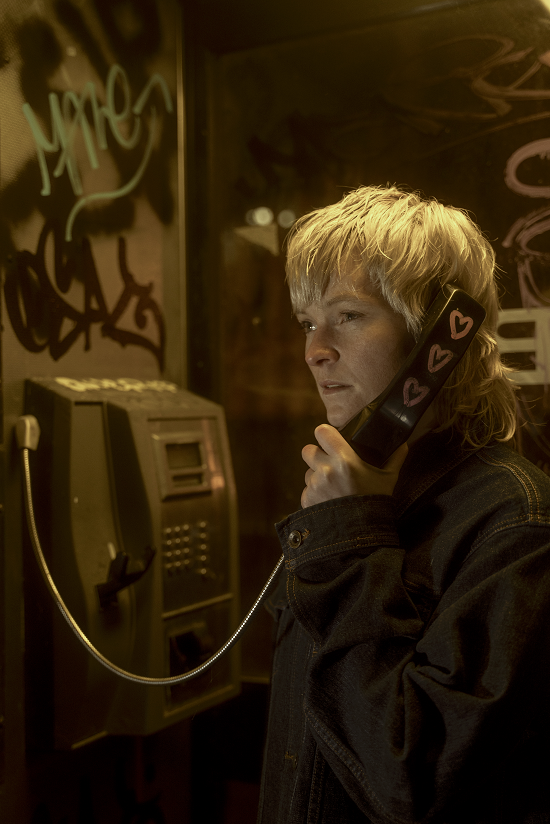
The result is an EP that’s more atmospheric than her debut album. She incorporates samples, of the rain, car engines and the eerie, strangely alien sounding ringtones of that payphone on the bay (which appropriately enough has been removed by the council in the time since she recorded). There are moments of striking ambience, particularly on a short untitled sequence where the sounds of the sea are punctuated by the jarring sound of WhatsApp notifications. For all of the hints at a wider world, however, it is also extremely intimate, its melancholia inseparable from the very personal grief of lifelong plans curtailed by cruel circumstances and the forced introspection of life under lockdown. The theme of communication might have been Maries’ jumping off point, “but I think the way I end up writing is always more personal than I realise,” she says. “In retrospect it is my response to the last year. I don’t think I intended to do that, and I resent that I’ve done that in a way, but I think it’s almost necessary. I think a few of us are gonna have to purge this.”
On the road to stage five – acceptance – with her pandemic grief, Maries’ sights are now set on the future. She has faith that the DIY music industry will return even stronger in order to survive; having weathered not only a pandemic but a Tory government intent on its destruction. “I think it’s sinister what’s happening. Truly. I think they’re afraid of music because it’s a massive influence on people politically,” she says. “My feeling is that this year I’ll be working [a temp job] somewhere again by the summer.” Nevertheless, she continues work on her second album. “I just want to survive the next year, and to keep making work,” she says. Billy Nomates reignited a fire in Tor Maries, and it’s one that continues to burn, against all odds.
Billy Nomates’ new EP Emergency Telephone is out in March

